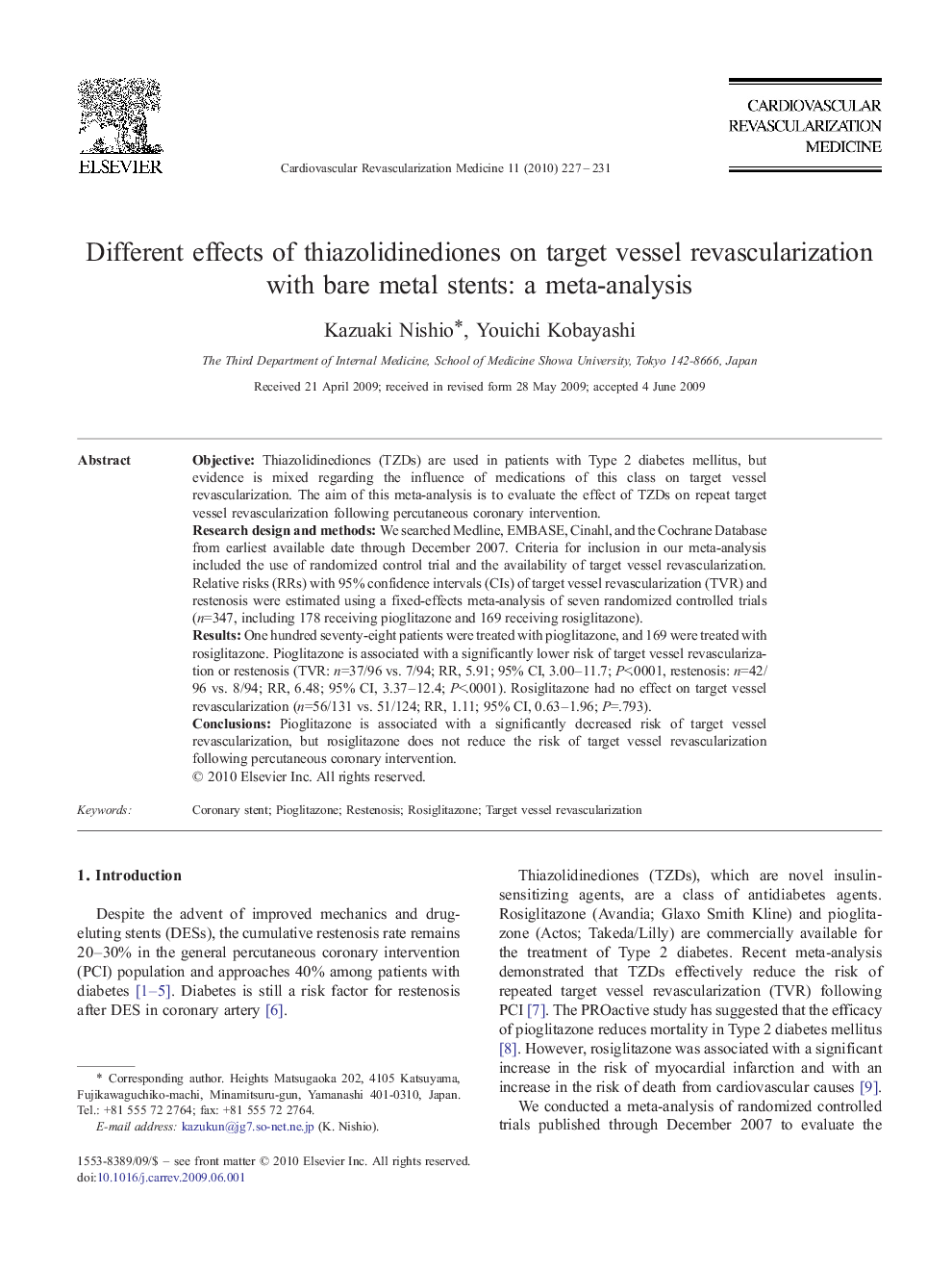| Article ID | Journal | Published Year | Pages | File Type |
|---|---|---|---|---|
| 2837196 | Cardiovascular Revascularization Medicine | 2010 | 5 Pages |
ObjectiveThiazolidinediones (TZDs) are used in patients with Type 2 diabetes mellitus, but evidence is mixed regarding the influence of medications of this class on target vessel revascularization. The aim of this meta-analysis is to evaluate the effect of TZDs on repeat target vessel revascularization following percutaneous coronary intervention.Research design and methodsWe searched Medline, EMBASE, Cinahl, and the Cochrane Database from earliest available date through December 2007. Criteria for inclusion in our meta-analysis included the use of randomized control trial and the availability of target vessel revascularization. Relative risks (RRs) with 95% confidence intervals (CIs) of target vessel revascularization (TVR) and restenosis were estimated using a fixed-effects meta-analysis of seven randomized controlled trials (n=347, including 178 receiving pioglitazone and 169 receiving rosiglitazone).ResultsOne hundred seventy-eight patients were treated with pioglitazone, and 169 were treated with rosiglitazone. Pioglitazone is associated with a significantly lower risk of target vessel revascularization or restenosis (TVR: n=37/96 vs. 7/94; RR, 5.91; 95% CI, 3.00–11.7; P<.0001, restenosis: n=42/96 vs. 8/94; RR, 6.48; 95% CI, 3.37–12.4; P<.0001). Rosiglitazone had no effect on target vessel revascularization (n=56/131 vs. 51/124; RR, 1.11; 95% CI, 0.63–1.96; P=.793).ConclusionsPioglitazone is associated with a significantly decreased risk of target vessel revascularization, but rosiglitazone does not reduce the risk of target vessel revascularization following percutaneous coronary intervention.
